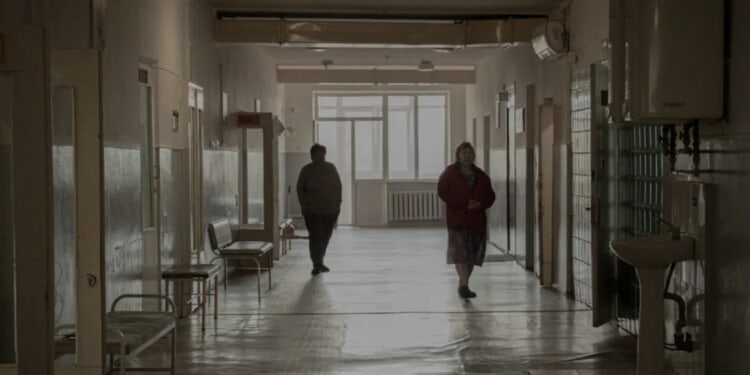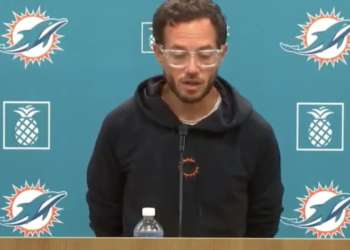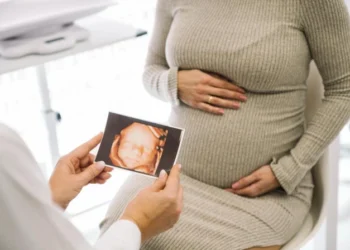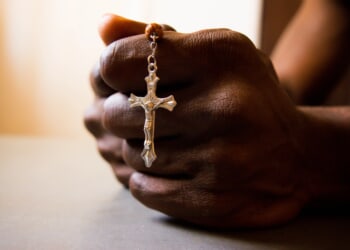Americans across the political spectrum were shocked to see Decarlos Dejuan Brown Jr. brutally murder Iryna Zarutska on public transportation. What they may not know is that Brown’s mother had attempted multiple times to get her son help at a mental institution. He was diagnosed with paranoid schizophrenia and was growing increasingly aggressive at home.
Brown’s 14 arrests, various prison stays, and homelessness are unfortunately not uncommon for Americans with serious mental illness. There are more individuals with serious mental illnesses in jails and prisons than in state hospitals. Nearly 29% of those with serious mental illness receive no mental health services at all. We see this reflected in the increasing numbers of unsheltered homeless on the streets of American cities where 67% have mental and/or substance use disorders, as well as in our jails and prisons where 270,000 inmates have serious mental illness.
American prisons, emergency departments, and streets are the de facto institutions of treatment because we lack a full continuum of care to serve those struggling with mental health conditions. This history starts in the 1950s, after investigative reporting uncovered mistreatment and abuse of those institutionalized for mental illness. These facilities were widely shuttered or dramatically reduced in capacity once President John F. Kennedy signed the Community Mental Health Act in 1963. When the Medicaid program was created, the law specifically prohibited funding for inpatient care at Institutions for Mental Diseases (IMDs).
As a result, people with serious mental illnesses and substance abuse disorders go untreated or become victims of the criminal justice system or homelessness. The United States has only 18 mental health beds per 100,000 people, far below what is needed to serve people in need. (RELATED: WaPo Cites ‘Experts’ Who Claim Institutionalizing Mentally Ill Criminals Is ‘Draconian’)
The good news is that our nation has begun addressing the dire need for care. The 2022 Safer Communities Act included a national plan for funding Certified Community Behavioral Health Clinics (CCBHCs). These programs focus on serving those with serious mental health and substance abuse problems by providing integrated mental health, substance use disorder, and physical health care from a single clinical setting in the community.
Community care settings play a vital role, but they cannot meet every need. For individuals with the most severe mental health conditions, we must ensure there are enough inpatient hospital beds to provide safe, effective and stabilizing treatment. That requires reforming Medicaid rules so psychiatric care in Institutions for Mental Diseases (IMDs) can be reimbursed. At the same time, expanding CCBHCs alongside increasing inpatient capacity would create the full continuum of care and safety net our system desperately needs.
A bipartisan bill titled “Increasing Behavioral Health Treatment Act,” or H.R. 4022 has recently been introduced and would repeal the Medicaid IMD exclusion. We welcome this measure as a means of providing care for a variety of needs. However, a number of disability rights groups are concerned about this legislation heralding a return to the conditions of the 1950s when people with disabilities were forcibly institutionalized in barbaric settings. There are many reasons their opposition is misguided.
First, today we have far more civil rights protections in place than we did in the 1950s for people with disabilities. The Americans with Disabilities Act of 1990 and the Supreme Court’s Olmstead decision all provide greater legal protections against forced institutionalization. Disability rights groups, hospital accreditation bodies, and departments of health and mental health in the states will continue to play a role in oversight of IMD services to assure that inappropriate institutionalization does not occur.
Second, the cost of institutionalization of this population is prohibitive. Lastly, proponents of lifting the IMD exclusion have been explicit in stating that the goal for this legislation is to make it possible for intensive, hospital-based treatment. When at all possible, the system should then support outpatient communities living with the availability of CCBHC services.
Americans are a benevolent people who want those suffering to get the help they need. Proponents of lifting the IMD exclusion and disability rights advocates share these goals and should come together to provide real help for the seriously mentally ill. The inhumane cycle of homelessness, imprisonment, and violence must end.
Elinore McCance-Katz MD, PhD is the former Assistant Secretary for Mental Health and Substance Use (2017-2021) and a Senior Fellow at Able Americans. Rachel Barkley is the director of Able Americans at the National Center for Public Policy Research.
The views and opinions expressed in this commentary are those of the author and do not reflect the official position of the Daily Caller News Foundation.
All content created by the Daily Caller News Foundation, an independent and nonpartisan newswire service, is available without charge to any legitimate news publisher that can provide a large audience. All republished articles must include our logo, our reporter’s byline and their DCNF affiliation. For any questions about our guidelines or partnering with us, please contact licensing@dailycallernewsfoundation.org.









![Florida Officer Shot Twice in the Face During Service Call; Suspect Killed [WATCH]](https://www.right2024.com/wp-content/uploads/2025/12/Inmate-Escapes-Atlanta-Hospital-After-Suicide-Attempt-Steals-SUV-Handgun-350x250.jpg)

![Keith Ellison Caught Promising to Fight State Agencies for Somali Fraudsters [WATCH]](https://www.right2024.com/wp-content/uploads/2026/01/Keith-Ellison-Caught-Promising-to-Fight-State-Agencies-for-Somali-350x250.jpg)





